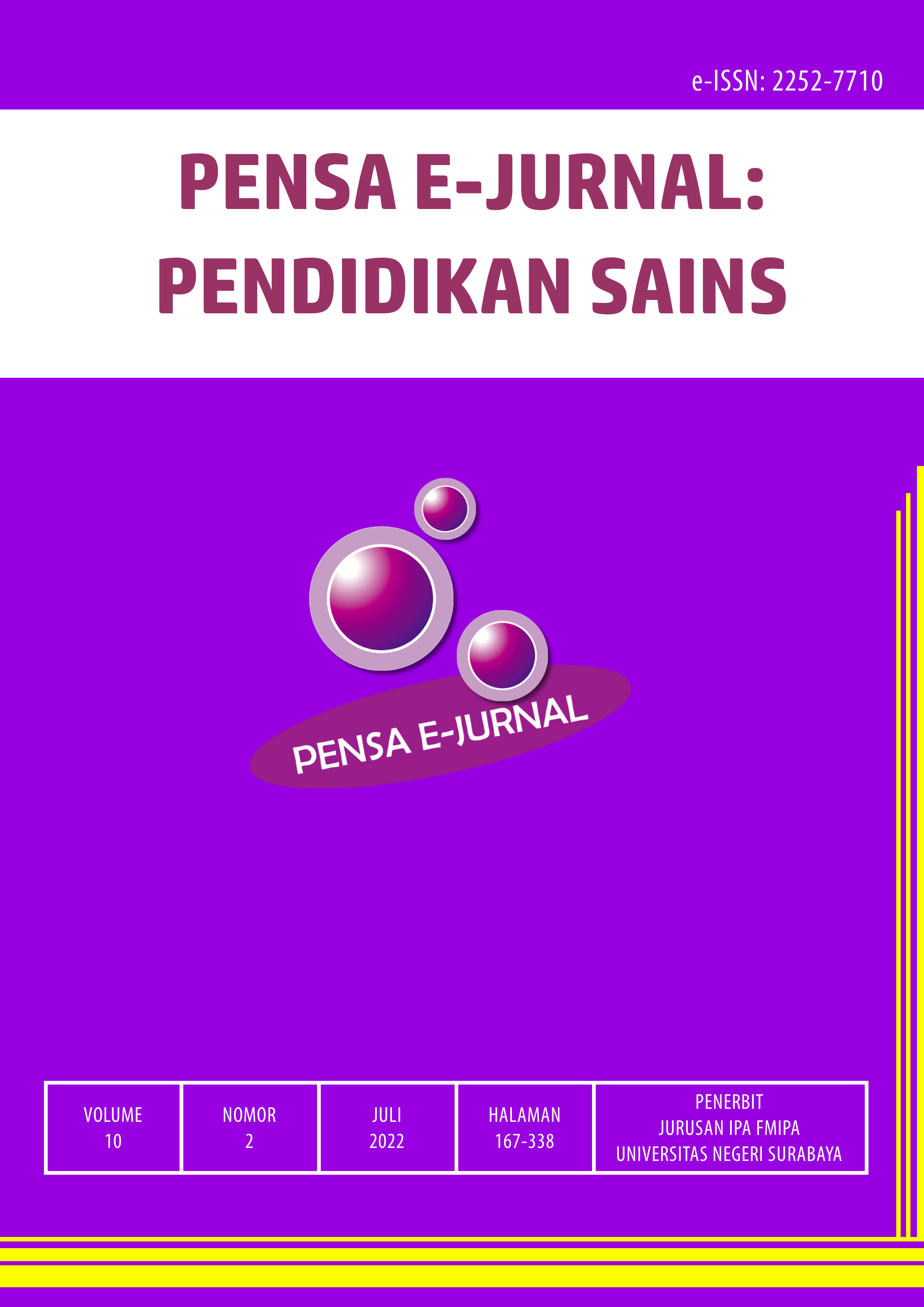PENERAPAN MODEL FLIPPED CLASSROOM-STAD UNTUK MENINGKATKAN HASIL BELAJAR SISWA
DOI:
https://doi.org/10.26740/pensa.v10i2.45045Keywords:
Flipped classroom-STAD, learning outcomes, blood circulatory systemAbstract
This study aimed to describe the increase in student cognitive learning outcomes by implementing flipped classroom-STAD models in the blood circulatory system material. This quantitative study was a pre-experimental design with one group pretest posttest as research design. Samples in this study were 32 students of VIII H class in SMPN 27 Surabaya. Data collection techniques used were test methods given before (pretest) and after (posttest) learning to measure student cognitive learning outcomes and a questionnaire methods to measure learning model implementation. Learning outcomes data were analyzed using paired t-test and N-Gain test. Paired t-test result indicated that there was an effect of treatment on student learning outcomes. As for the N-Gain test result obtained value of 62% that indicated an increase in medium category and classical completeness also achieved with a percentage of 87%. Based on the result, it can be concluded that the flipped classroom-STAD models implementation improved student learning outcomes on science learning in the blood circulatory system material.
Downloads
Downloads
Published
How to Cite
Issue
Section
 Abstract views: 282
,
Abstract views: 282
, PDF Downloads: 288
PDF Downloads: 288

















